Time Travel, Body Swapping, And What It Means to Be a K-pop Idol
Reviews of the K-dramas "A Time Called You," "Doona!" and "Uncontrollably Fond"
Most of the United States experienced the end of daylight saving time at 2 a.m. this morning and got to sleep in for an additional hour. How’s that for a neat segue into my K-drama reviews, which include a look at a time-traveling series?!
Without further ado, I’m sharing my reviews of:
• "Doona!" (이두나!) ☆☆☆
• "A Time Called You" (너의 시간 속으로) ☆☆☆
• “Uncontrollably Fond” (함부로 애틋하게) ☆☆
Please check out the anchor links if you’d prefer to read just one, but not the other.
A reminder about my reviews: The ratings are based on a ☆☆☆☆ system and reflect my own personal tastes. If I’ve made a flagrant error, please leave a comment and I will correct it (and tag you). If you just don’t agree with my opinions, then we’ll both have to live with that.
"Doona!"
☆☆☆☆
Lee Doo-na (played by Bae Suzy)
Lee Won-joon (played by Yang Se-jong)
↑Note: Korean names denote the surname followed by the given name.
There is a recurring dream sequence in "Doona!" A young woman is submerged in water. From below, she can see the glitz and glamour of her life as a top star. But when our protagonist startles herself awake, we see her living a mundane life, waking up sweaty in a small apartment and taking long drags of cigarettes in the courtyard. This is how we meet Lee Doo-na, a famous K-pop idol who is hiding away in a shared house for college students.
There, she is annoyed and intrigued by the newest dweller — a sophomore engineering student who moved away from home to cut down on his commute. Yes, it will cost him more to live away from home, but he’s already factored in how living on campus will give him more time for his studies.
At their first few meetings, Won-joon has no idea who Doo-na is. And he’s not particularly enamored by her beauty, either.
For a woman who spent most of her childhood and all of her adulthood being sexualized as the unrealistic object of fans' fantasies, all of this intrigues her. The more he pulls away, the more she wants to be close to him. And by the time he gives in, he is in too deep to do what is best for him — which is to resist her.
She is a woman who needs to be saved from ... something. And he wants to be the one to rescue her.
“All cultures have a stigma against mental illness. But when talking about celebrities, the intersection of culture and psychology becomes very important. The idea that one must please everybody is both a very Korean idea and a very common problem with fame. So it is a double whammy.”
Formerly an idol in the K-pop group Miss A, Bae inhabits her role with the assurance of someone who knows the business. Though she has said in press releases that her idol experience is not the same as Doo-na's, the viewer can extrapolate that there are certain commonalities that some performers will relate to. Her chain smoking isn't a habit borne from her pre-trainee years. One can extrapolate that like many performers, Doo-na took up smoking as a way of keeping her body weight perilously low — a prerequisite for female K-pop stars.
Based on Min Song-ah's webtoon "The Girl Downstairs," the taut series is helmed by "Crash Landing on You" director Lee Jung-hyo, who meticulously unravels all the traumas that make Doo-na an easy target for K-pop's seedier side. The lethal combination of an opportunistic stage mother who spends all her daughter's money and a predatory management company that doesn't care about Doo-na's mental or physical health created an alluring ticking bomb they thought they could control.
Doo-na needs help, but the people who are supposed to take care of her aren't overly concerned with her well being. She's gained weight, her mother points out. She needs to make her comeback before people forget about her, her manager dictates. They care about Doo-na, the business, and not the young woman whose cries for help have consistently been ignored.
When I wrote about mental health and how it's handled in Korean pop culture, I spoke with experts, including an associate professor of psychiatry and behavioral neuroscience at the University of Chicago. “All cultures have a stigma against mental illness," said Dr. Royce Lee. “But when talking about celebrities, the intersection of culture and psychology becomes very important. The idea that one must please everybody is both a very Korean idea and a very common problem with fame. So it is a double whammy.”
While it's plausible to believe that the studious Won-joon doesn't know who Doo-na is, it was less likely that his two male roommates were clueless about her identity. Yes, she had the first floor all to herself, while the young men shared the three bedrooms on the second floor. But she smoked outside daily. And, she also has the kind of unique luminous beauty that is highly noticeable ... even when she's wearing the ubiquitous black hat that supposedly hides its wearer's identity.
She is nonchalant when she tells Won-joon, "No one recognizes me unless I'm made up [like an idol]." But it made me chuckle, because I know for a fact that there are many K-pop fans who can ID their faves by a photo of the back of their ear.
Bae was just 16 when she made her acting debut opposite Kim Soo-hyun in "Dream High," where she played a young singer hoping to launch her career. Back then, she was a cute girl whose acting skills were still being honed. She has since grown into a strong actor. One of her most nuanced roles was in last year's "Anna."
The ending is one that I found beautiful and realistic, especially for an intense first love. It was one that showed promise for the future.
Airdates: Netflix dropped all nine episodes (ranging about 45 to 50 minutes each) at 11:59 p.m. KST on October 19, 2023. My review is based on the screeners that Netflix provided me in advance.
Spoiler Alert: No one listened to Doo-na when she basically said she was having a breakdown. She told her label that she couldn't sing anymore, She could speak and function, but there was something preventing her from being able to sing and perform on stage. At the very least, she needed a break.
Her manager — who was the father figure she longed for and who also was cognizant of the fact that she had a huge crush on him — hid her away in the shared housing, not so much to allow her to rest, but to make her want to go back to her old life.
When she breaks ties with her label, they sue her and make it so that she cannot financially survive without returning to music. She tells the label CEO that she wants full creative control over her music. And the way the woman stared at her, promising her the world, made it clear that Doo-na might get a little more freedom. But she would not be the one navigating her future.
The series ends about four years after Doo-na and Won-joon were forced to break up. (Idols can't have personal lives that the public knows about, right?) In the final scene, both are in Japan (separately) for work. As they go in opposite directions, she hears his voice and smiles.
Is there a secret meaning to all of this? Have they moved on from each other? Is the familiar voice simply a reminder of her past? Or, perhaps, are they dating in secret and she knows she'll see him later. Honestly? I'm fine with any of these scenarios. But I don't think that a happy ending relies on the two of them being together. Sometimes, memories of the past is where they should remain.
"A Time Called You"
☆☆☆
Koo Yeon-jun / Nam Si-heon (played by Ahn Hyo-seop)
Han Jun-hee / Kwon Min-ju (played by Jeon Yeo-been)
Jung In-gyu (played by Kang Hoon)
↑Note: Korean names denote the surname followed by the given name.
A remake of the Taiwanese series "Someday or One Day," the Korean version of this time-travel drama isn't always easy to follow. But if you suspend your belief in reality and just go with the flow, you will find yourself immersed in a compelling plot that centers on love, while it also navigates story arcs about guilt, gaslighting and a serial killer. (That's right!)
"A Time Called You" is a love story between two sets of doppelgangers whose lives are intertwined. One pair lives in 1998 and are high school students. The other couple resides in present day and are in their mid-thirties. Math will tell you this can't be the same set of people, because their ages don't add up. Literally. But what this story conveys so well is that eternal love transcends time and, sometimes, common sense.
It was confusing for me to keep track of the characters each time they time traveled, so I went by their mannerisms more often than not. Jeon Yeo-been is the female lead, Ahn Hyo-seop is the male lead and Kang Hoon is the third wheel (who deserves a stronger story line). While Ahn's Si-hyeon and Yeon-jun were differentiated primarily by age, Jeon played her two characters distinctively different.
All three actors are good in their roles, but this is Jeon's series. At 34, she is the eldest of the trio and (like her male co-stars) looks too old to be a real high school student. However, her mannerisms convey such truth that when she is on screen, you believe she is who she says she is. Teenager? Sure! Mid-30s worker? Of course!
There is a moment in Episode 8 where Min-ju's uncle — who somehow understands this parallel universe in a way that I wish was explained better — is talking to 19-year-old Yeon-jun when adult Si-heon calls him on the phone to clarify a matter. What in the “Doctor Who” is going on?
There is a gay subplot that I wish had been fleshed out and an ambiguous ending that won’t make some viewers happy. But I choose to believe that the ending promises hope. I'll discuss this a bit more in the Spoiler Alert below.
Airdates: Twelve episodes — ranging from 46- to 75-minutes each — dropped on Netflix on September 8, 2023.
Spoiler Alert:
I'm not really sure why an unexplored gay subplot was added to this series. It deserved to have at least one full episode to flesh out some details. In a backstory, viewers see that before all the time traveling and body jumping, Yeon-jun was gay. He died in a car crash with his boyfriend Taeho (Rowoon). At that same time, Si-heon was in a bus accident, survived and his soul jumped into Yeon-jun's body. The two looked identical to each other, which made this supernatural feat possible. (I dunno. Just go with it.)
Remember that serial killer I had mentioned earlier in the review? The culprit was the younger brother of a classmate, but the elder sibling ended up locked away in a mental institution after witnessing the younger boy’s horrific crimes. The child had killed teenage Min-ju.
And stricken with grief that he hadn't been able to save her, In-gyu confessed to a murder he never committed. Once released from prison, he dies by suicide. I'll be honest: I didn't understand this at all. I get that there is survivors' guilt. But why would anyone throw their life away for something they literally didn't do?
But, Jun-hee and Yun-jeon are able to figure out how to save them both through their final time traveling trip. In order to give peace to Min-ju, whose body she inhabits when she goes back to the past, Jun-hee asks In-gyu to destroy her time traveling device: an old cassette player with a tape in it. (Speaking of which, the show never explained how and why this song was so important in their time travels.) She realizes, and so do we, that this means she can never be reunited with Yun-jeon in the past, present or future.
While there is no traditional happy ending, the series ends with hope. Two strangers, who look just like our lead couple, reunite on a bus. As for a happily ever after? That's left for them to decide. I choose to believe that true love transcended time and they found their way to each other in a time that wasn’t saddled by a troubled past.
"Uncontrollably Fond"
☆☆☆☆
Shin Joon-Young (played by Kim Woo-Bin)
No Eul (played by Suzy)
Choi Ji-Tae/ Lee Hyun-Woo (played by Im Ju-Hwan)
↑Note: Korean names denote the surname followed by the given name.
What would you do if you knew that you had three months left to live? Would you spend it with the ones you love, or would you try to right the wrongs in which you played a part?
That’s the dilemma for Korea’s top Hallyu star Joon-Young, who is dying. I don’t feel bad about revealing this bit of information, because it’s divulged early on in this series.
Joon-Young was raised bv his single mother. Though he was handsome and popular with the girls in school, he got into fights with boys, who felt they were better than him since they had fathers and he didn’t.
He will, of course, fall in love with Eul. But their relationship will be complicated, thanks to murder, a coverup and revenge.
The most maddening part of this series was how many days Joon-Young wasted in the short time he still had left. It reminded me of “I’m Sorry, I Love You,” where the lead character knew he was dying. Yet, he spent most of his time running away from the woman he loved, because he thought that would make it easier on her after he died.
I’m not sure if there’s an easier way for survivors to deal with the premature deaths of their loved ones. I’ve always believed that one of the best gifts you can give someone is your time. When you show up at someone’s wedding and sit through a long service and reception — or you come out to pay respects at someone’s wake or funeral — the time that you’ve shared is more valuable (to me, anyhow) than any present.
For the person who is dying, memories can be the most precious gift that you can give the survivors. Your friends and relatives will grieve your death regardless. But, those memories will help them heal.
Before going on, take a look at this character relationship chart from allkpop. It’s helpful in keeping track of the intertwined relationships between the characters:
Neither of the leads (Kim Woo-Bin, Suzy) is as skilled as more mature actors (such as So Ji-Sub and Shin Min-A in “Oh My Venus“). But overall, they did a good job with the melodramatic material they were given.
What I really disliked is the writers’ attempt to manipulate viewers’ emotions. Don’t give us heartless, immoral characters (like Ji-Tae’s parents), have them do one or two good things and then expect us to root for them. When they do this, it reminds me of “Melrose Place,” rather than a quality drama.
Violence as love: In Episode 6, in what is supposed to be an awwwww-inducing moment, Eul pretends to be asleep after drinking too much. Joon-Young cares for her and cleans her up and says softly to himself, “What am I to do? Hit you, until you say you don’t like that other man.”
WTactualF?
Ick factor: Hyeon-Joon’s daughter is infatuated with Joon-Young, not realizing they are half siblings.
Airdates: This 20-episode series aired on KBS2 from July 6 to September 8, 2016.
Spoiler alert: There are very few redeeming characters in this series. Let’s do a tally, shall we?
√ Joon-Young‘s parents are pieces of work. Hyeon-Joon abandoned Young-Ok when she was pregnant. Early on, we are told that she was ordered to break up with him by Hyeon-Joon’s older brother, because she wasn’t a suitable match fo him. But later we learn that Hyeon-Joon made that decision for himself.
√ Hyeon-Joon’s socially-acceptable wife, Eun-Soo, is so blinded by power that she will stop at literally nothing to maintain that status quo — even if that means having her son, Ji-Tae, killed. Surprise! He lives. And, he continues to live in the same house as them even after finding out what she did.
√ Young-Ok placed Hyeon-Joon on a pedastal and never blamed him for abandoning her when she was pregnant. Raising a child by yourself isn’t easy anywhere, but in South Korea — where single moms are treated horribly and often encouraged to give their children up for adoption — it’s almost impossible. She shunned her son for not becoming a prominent prosecutor like his father. In what world is it more prestigous to be a government employee than the country’s most famous movie star? The fact that she refused to have anything to do with Joon-Young in the early episodes made her an incredibly unlikeable character — even after she softened up near the end when her kid was dying.
√ Joon-Young isn’t without fault, either. Unbeknownst to each other, he and his step-brother, Ji-Tae, both saw a driver hit and kill Eul‘s father and then speed away. Instead of reporting it to the police — or attempting to help the dying man — they chose to protect their dad, who was ordered by the driver’s wealthy and powerful father to “fix” the case.
√ Ji-Tae is a jerk, too. Riddled with guilt, he befriends Eul and her little brother, by pretending to be a poor graduate student named Hyun-Woo. He does so because he knows that Eul would never be interested in dating the son of the prosecutor who fudged her father’s case.
√ Jeong-Eun — the hit-and-run driver — is a sociopath who is occassionally haunted by what she has done, but then dismisses it by saying that everyone has to die some time, and that isn’t it really a blessing that he died without putting his family through the financial wringer by staying hospitalized and alive?
√ Last, there is Eul — the trod-upon heroine of this series. Trying to escape loan sharks, thanks to the bills accumulated by her deceased parents, she takes bribes left and right from influential business people to not report on their wrongdoings. Here’s the thing: I get that she has to do what she has to do to survive and take care of her brother. But it almost becomes a joke how easily she is bought. When Eun-Soo offers her the equivalent of almost $10 million to stay away from Ji-Tae, she accepts, before returning it. She tells Eun-Soo that she will still stay away from Ji-Tae and she won’t reveal their family’s illegal actions. That’s taking the moral high road? No, girl! You’ve already been bribed so many times. If you’re not planning on turning them in for their illegal transactions, then take the money, pay off all your debts, buy a house for you and your brother and pay for his soon-to-be college tuition. And then turn them in anyways! There is no honor among thieves, remember?
You never know in these dramas if someone who is expected to die actually will. Joon-Young does not survive. He dies quietly in Eul’s arms. The scene was beautifully acted and filmed with understated grace. I wish the series showrunners had concentrated more on moments like this, rather than the convoluted plotline that made this drama drag on.
Recommended reading:
• Misogyny, rigorous demands and the stigma against seeking psychiatric help (VARIETY)
• How K-pop Stars Are Leading Mental Health Conversations for AAPI People and Beyond (Teen Vogue)
Kim Ji-Young, Born 1982
I just re-read Kim Ji-Young, Born 1982 again. It’s just 163 pages and goes by quickly. It’s a reminder of what a thankless job it can be for women who quit their jobs to raise a family. I’m not saying that being a mother is a thankless job. What I’m saying is that it comes at a cost.
Near the end of the book, our protagonist is enjoying a coffee, which she bought at a discount from a local cafe. Her baby is napping in the stroller. She overhears a group of men in their 30’s — who should know better — describing her as a leech:
I wish I could live off my husband’s paycheck … bum around and get coffee … mom-roaches got it real cushy … no way I’m marrying a Korean woman …
The cruelty of his words indicate that he’s incredibly bitter, stupid and knows nothing about childcare. If men could get pregnant and give birth, and then stay home and take care of the children, do you know how many women would gladly become the family’s financial providers?
© 2023 JAE-HA KIM | All Rights Reserved




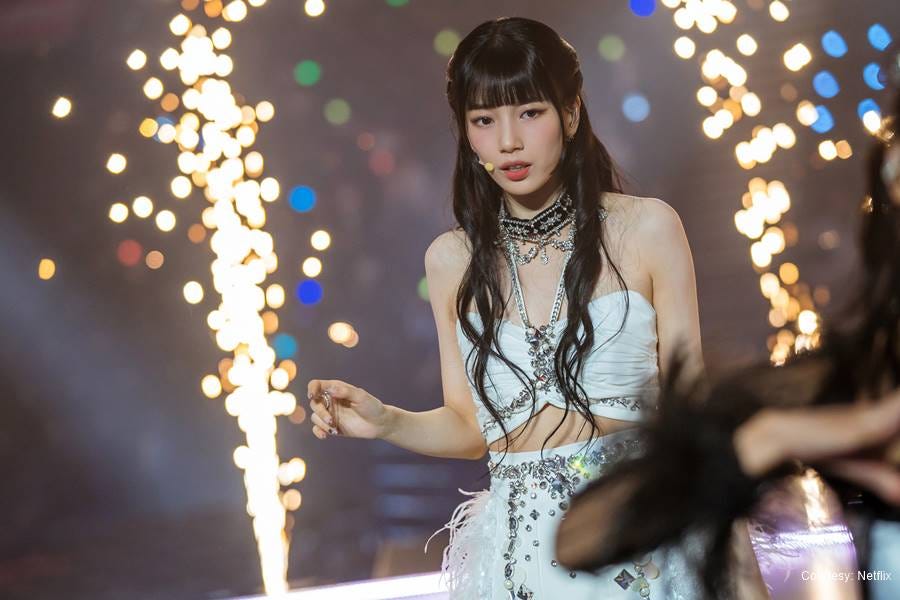
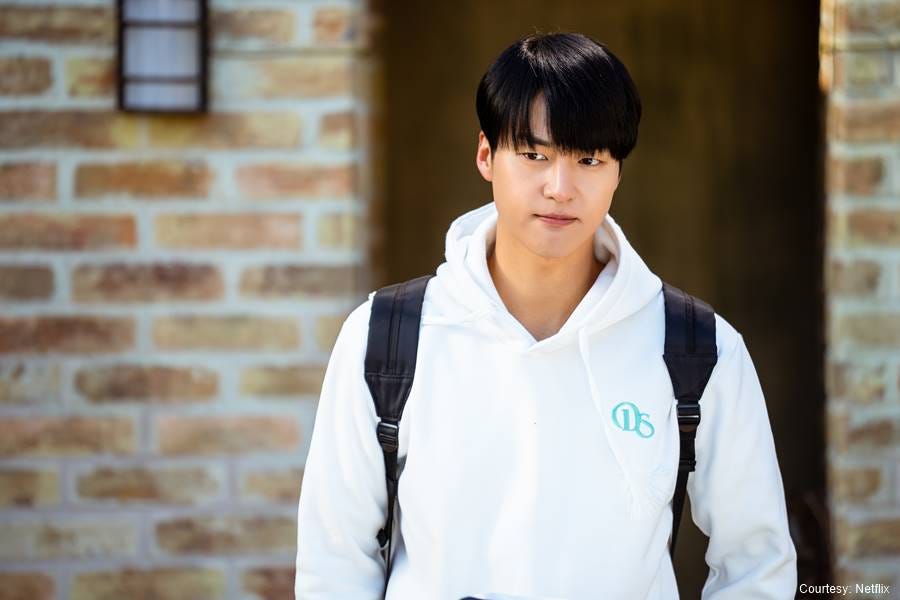
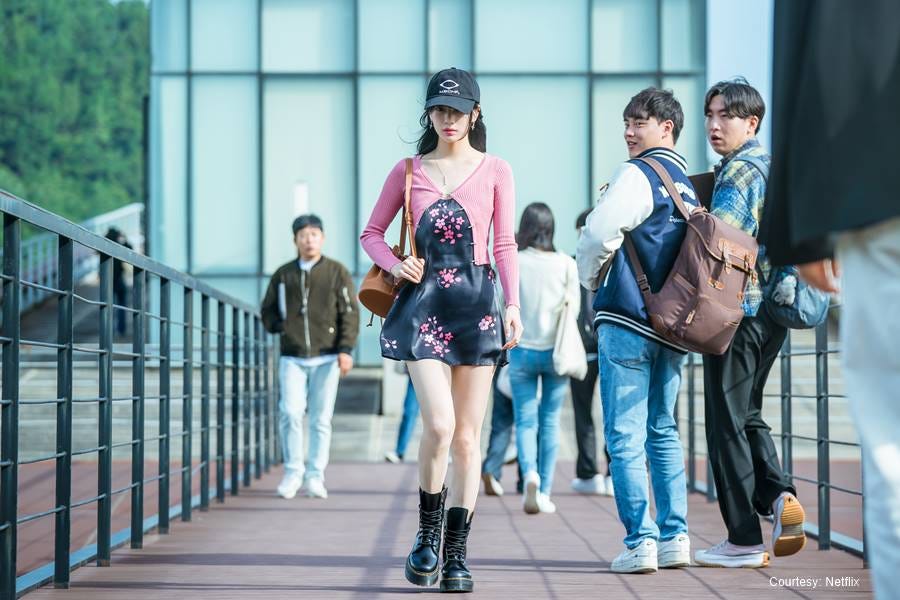
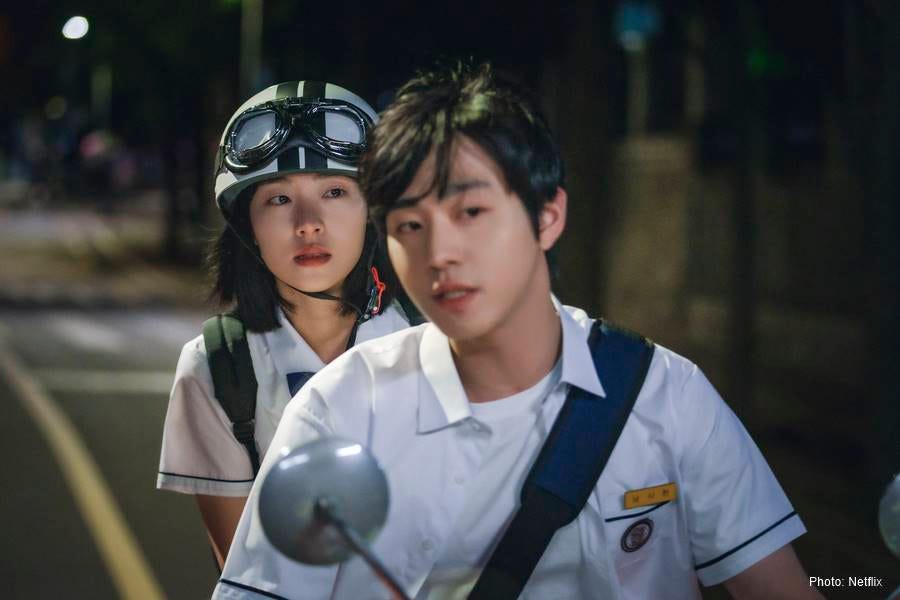
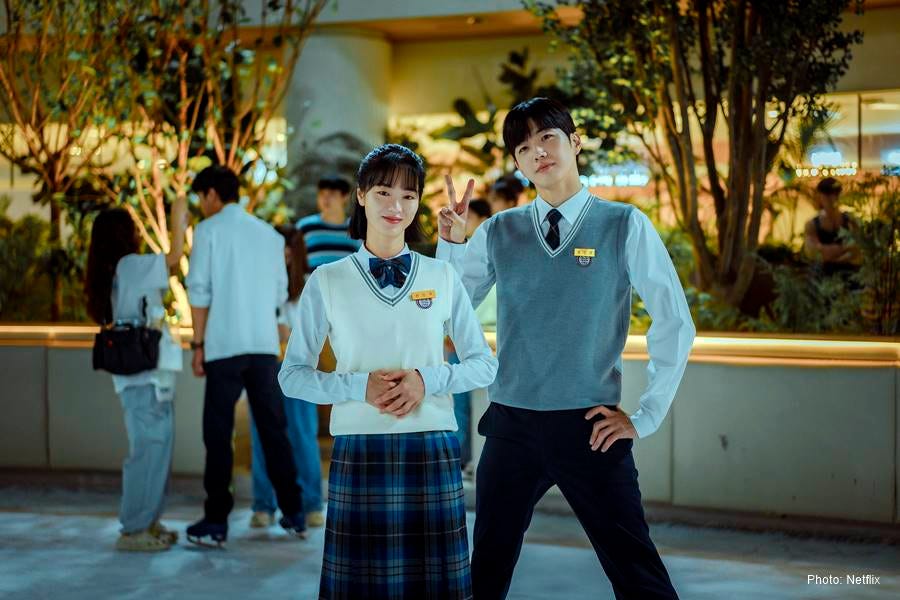

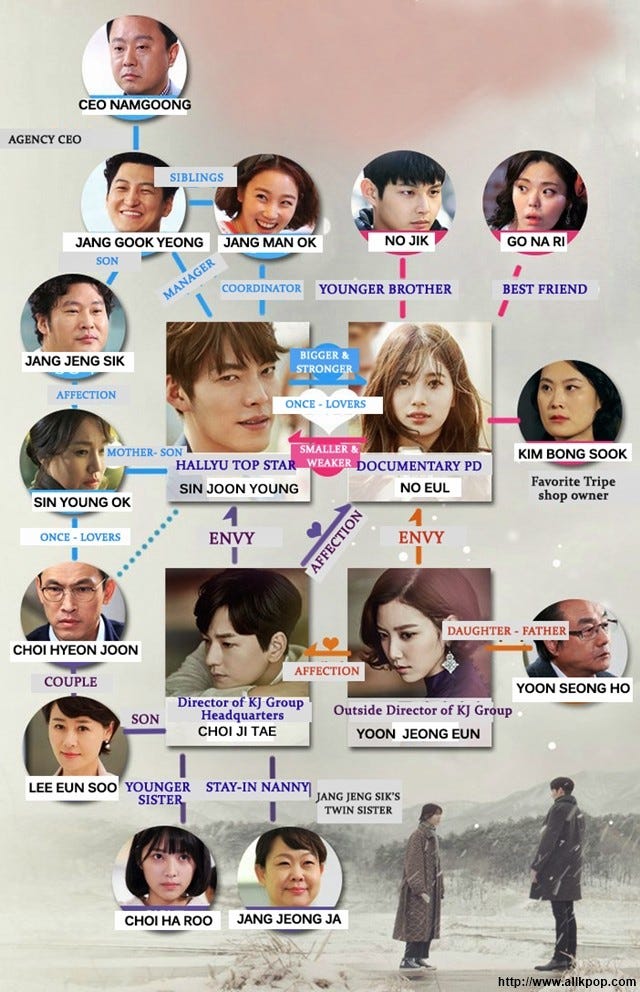
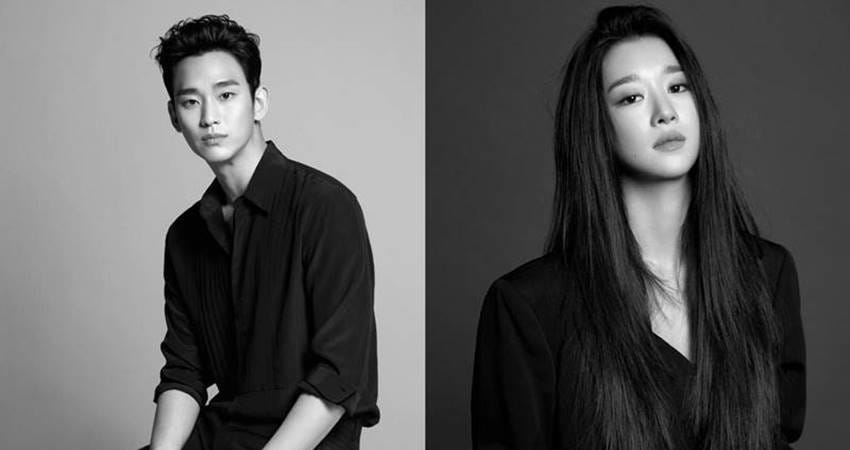
I haven't seen either yet, but both come highly recommended by friends and fellow K-Drama fans. I should see it then! I was a little hesitant about Doona because I saw a lot of people mulling over the ending, unable to decide whether they liked it or not. But I think I'll give it a try and see for myself.
Do moms in Korea not work?